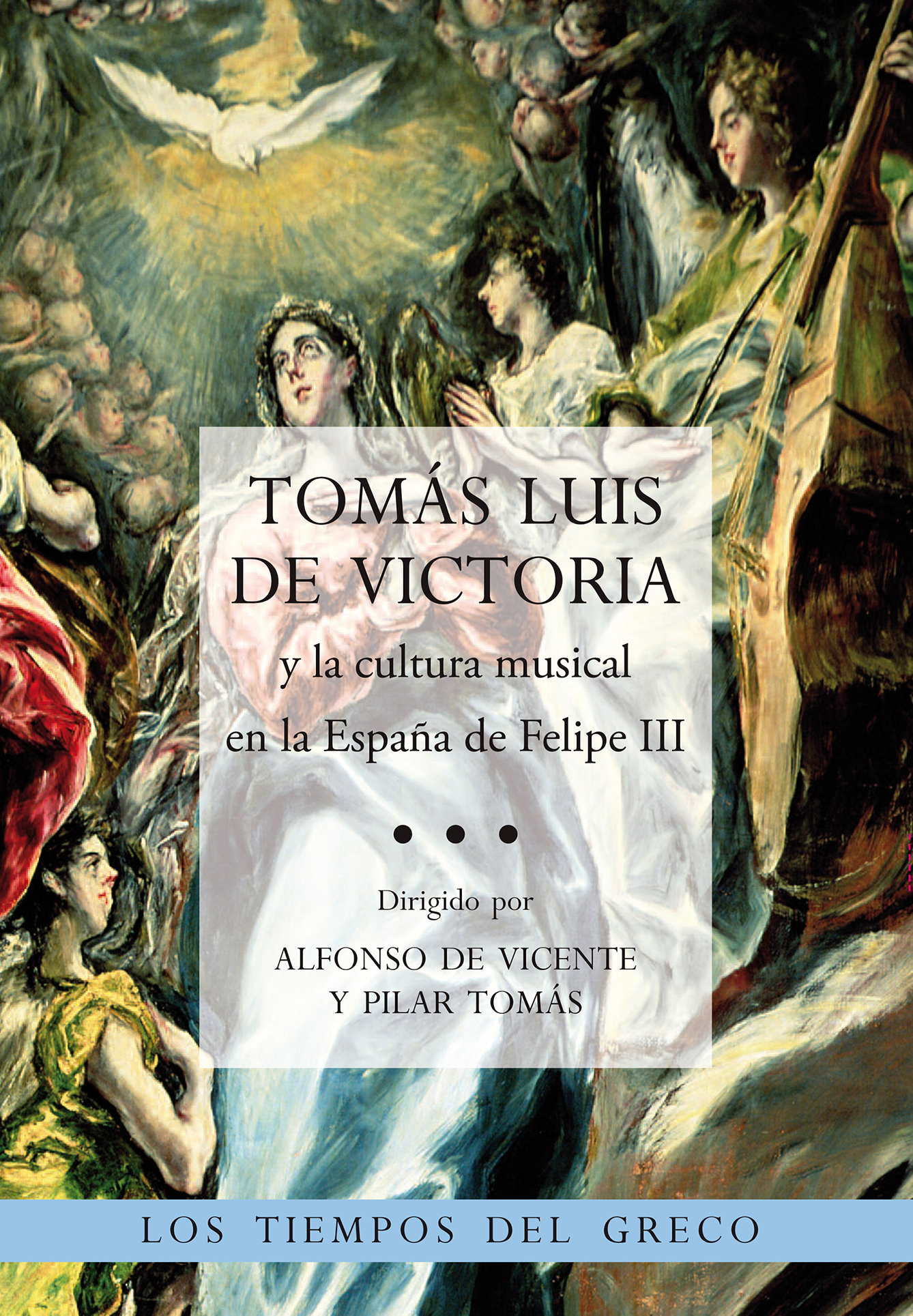Author
Alfonso de Vicente and Pilar Tomás (dirs.)
Characteristics
496 pages; 131 color illustrations; flapped paperback; 17 x 24,5 cm
Publication
Spanish; jointly published with Machado Libros in association with the Fundación El Greco 2014; 2012
ISBN
978-84-15245-21-6
Price
€38,46
In 1600 Tomás Luis de Victoria devoted an anthology of polyphonic compositions to the young King Philip III, among them the Missa pro victoria, a polychoral battle Mass—the politico-religious musical genre par excellence. This fact provides the framework for a series of essays on the connections between religious music and political power in the Hapsburg period. The musical culture of the court of Philip III—in both Madrid and Valladolid—and of related institutions such as the convent of the Descalzas Reales and the monastery of El Escorial, as well as the socioeconomic environment and mechanisms for disseminating Victoria’s work in the Iberian peninsula and the American colonies, are analysed from a variety of approaches that shed new light on the Castilian composer’s output and highlight his singularity in that period.
If Philip III’s personal and institutional contributions to musical activity have been obscured in historiography by the shadow of the previous reign, the same may be said of Victoria himself: currently considered the most important Spanish composer of the sixteenth century and a musical memento of the Spain of the Prudent King (as Philip II was known), he nevertheless produced two of his most representative works (that of 1600 mentioned above and the Officium defunctorum) subsequently, under Philip III. Situating him correctly in his period, this book also traces the critical fortunes of this composer by studying the reception of his music over the centuries.
Alfonso de Vicente is a lecturer in the History of Music (Conservatorio Profesional de Música, Madrid) and conducts research into subjects related to cultural and institutional aspects of Spanish religious music of the Modern Age. Prominent among his most recent works are a study on musical activity at the Hieronymite monastery of San Bartolomé in Lupiana and an edition of the letters of Tomás Luis de Victoria.
Pilar Tomás works in the field of cultural management. She has co-edited the Catálogo de manuscritos musicales of Patrimonio Nacional and the Catálogo de cantorales of Toledo cathedral. She directed the Religious Music Week activities held in Cuenca and the Academia de Órgano Julián de la Orden.

